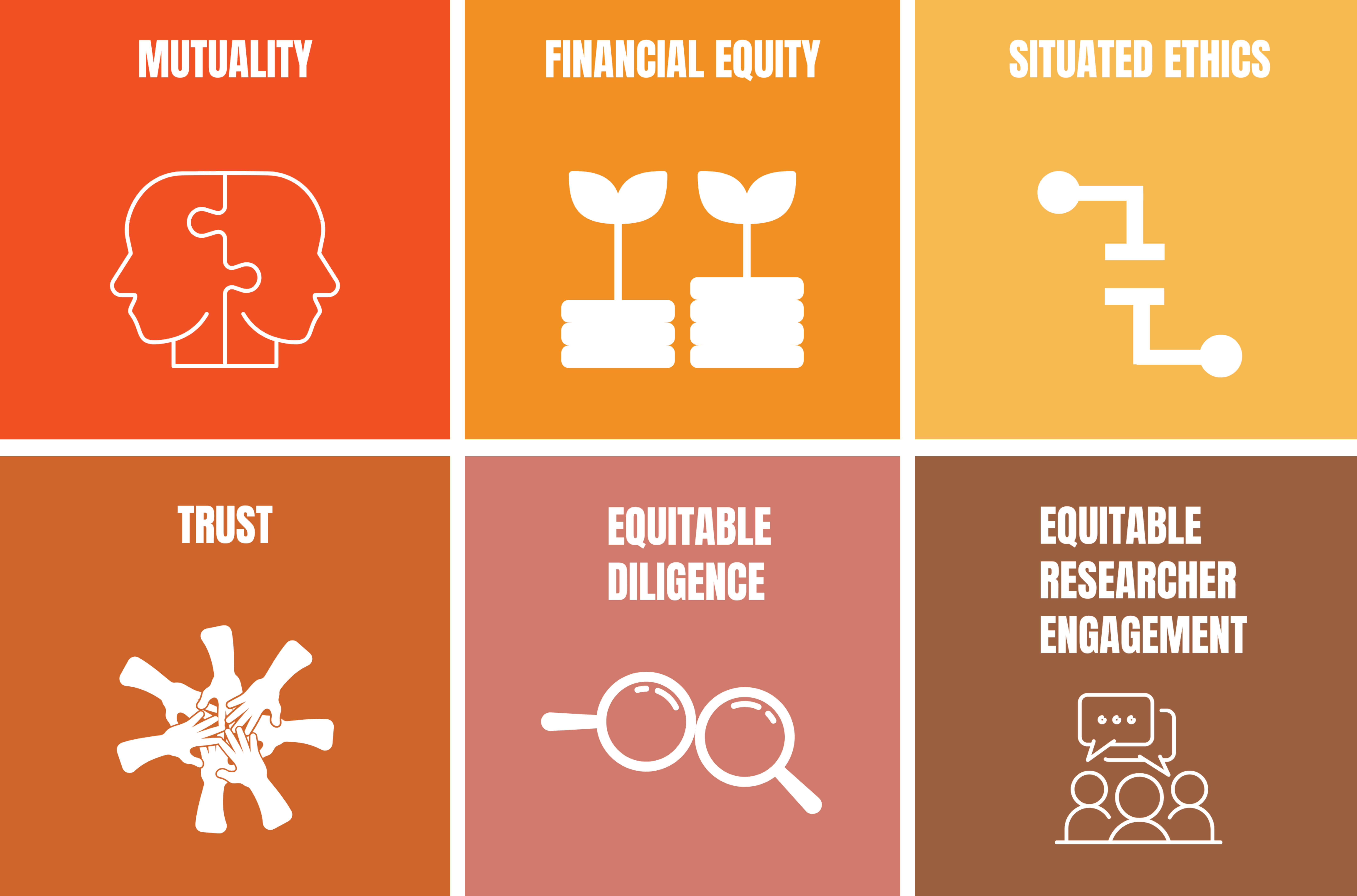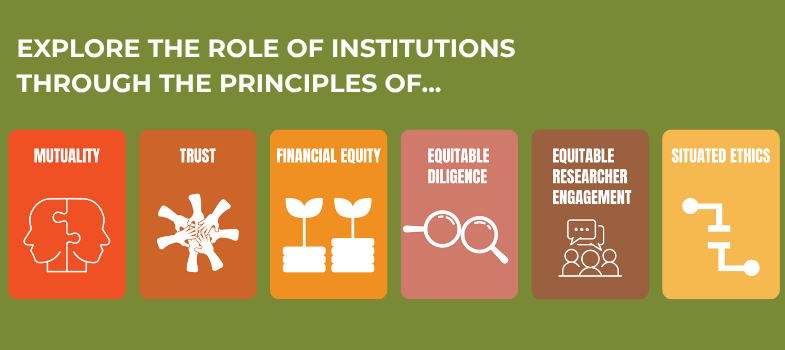Equity as an institutional concerns
Most discussions on equitable research focus on the relationship between partners within the project. This covers the entire timeline. From when you are reaching out to others at the early stages of proposal ideas and development, right through to the last stages when you are deciding the who, where and how of communicating and disseminating your results. The emphasis here, is on equity as an inward-looking exercise.
Much less attention is paid to the wider systems within which research and researchers operate. The BEAP (Building Equitable African Partnerships) project, which was the genesis of this course, held workshops and discussions involving many research stakeholders from across Africa. A core recurring theme was the impact of institutions and the research ecosystems they create as a source of inequity for how people work together in research.
The central focus of this course is on institutions as a too often overlooked source of inequity and power asymmetry. Whether your own, or your partners’, institutions govern the research ecosystems within which our research must operate – setting the policies, protocols, practices and processes. The course interrogates the effects of institutional influence on research processes and relationships using six categories:
-
Mutuality – developing understanding of the differing operational requirements and institutional systems partners work within.
-
Trust – introducing openness and honesty to the bureaucratic processes and paperwork to reduce suspicion and foster respect. Such as through collaboration agreements.
-
Equitable Researcher Engagement – developing interpersonal relationships that address institutional and systemic biases to career growth. Such as more equitable publication protocols or ensuring non-academic outputs are given equal priority.
-
Equitable Due Diligence – confronting the incompatibilities and intrusiveness of regulatory compliance.
-
Financial Equity – examining the unevenness of the funding landscape and exploring flexibility in finance systems.
-
Situated Ethics – cultivating the sensibilities of what ethics means for all partners, recognising socio-cultural and legal differences.
These six aspects of partnering emerged as core themes identified through discussions across the BEAP workshops.

Collectively, they provide a useful framework through which to think about and analyse the multitude of ways with which institutions effect working relationships within research.

This artwork was created through the Fluid Borders project. The team used border thinking to challenge conventional ideas of peace education. Border thinking confronts dominant ways of thinking by prioritising marginalised and excluded knowledges from groups in the 'borderlands' of society. While it is largely used to rethink notions of citizenship and immigration, it is about challenging power and hierarchies established by institutions.
